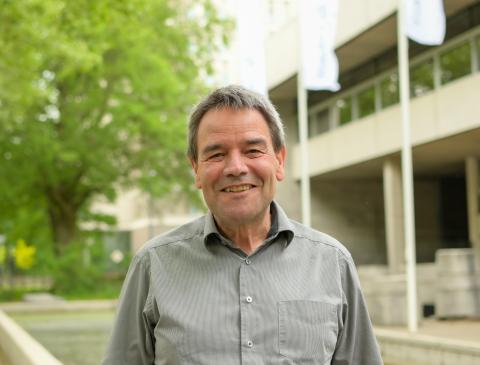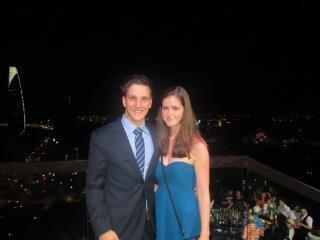A sober start to the new year: A month without alcohol during Dry January
In the first month of the new year, many people make their New Year’s resolutions. Participating in Dry January, a month without alcohol, is often one of them. Researcher Rob Bovens currently works at Tranzo and has worked in (alcohol) addiction prevention for almost 40 years. He was at the basis of the “IkPas” (“NoThanks”) campaign and Dry January in the Netherlands.
After the holidays, all the empties are taken to the bottle bank. Time for healthier food, more exercise, and less alcohol, or even none at all. That is also the mission behind the IkPas campaign, the Dutch version of Dry January. Rob Bovens, researcher at Tranzo: “What you can see is that people join IkPas for all kinds of reasons: they want to lose weight, have a better quality of sleep, take a period to recover after the holidays, improve their athletic performance, or just participate with friends. When, during those thirty days, participants notice that they sleep better, for instance, that motivates them to continue. The specific learning experience that applies to you makes you choose to drink less or not at all. This puts you back in control.”
More and more celebrations involve alcohol
The number of moments in which alcohol is imbibed is on the increase. This makes it harder for people to reduce their alcohol intake or to stop drinking altogether. Rob Bovens: “The first glasses were probably raised over your cradle and, from that moment, alcohol is involved in every festive occasion, of which there are increasingly more. Take the average wedding: you need to book the venue at least a year in advance, you have to engage a photographer, test the wine, choose the wedding dress, ask the witnesses, etc. An average wedding gives rise to 10-14 festive moments. That is good news for the alcohol industry.

The ‘alcoholization’ of society has led to a situation in which almost all special moments are celebrated with alcohol. This makes it hard for people to avoid alcohol.
Rob Bovens
The ‘alcoholization’ of society has led to a situation in which almost all special moments are celebrated with alcohol. This makes it hard for people to avoid alcohol. People become aware of this when they do not drink alcohol for 30 days. It is only then that you realize how many moments there are that you would normally have taken alcohol.”
Results of IkPas
The people who participate in IkPas are carefully supervised from start to finish. Rob Bovens: “During the campaign, we offer a comprehensive support package of tools and resources. The participants are very keen. They can tick a box to indicate how often they want to receive a newsletter, for instance. 70 percent wants to receive a newsletter every day. Of these participants, 70 percent actually opens the newsletter and then reads it for two and a half minutes.”
The support package proved very successful: research has shown that 70 to 80 percent of the people participating in IkPas completed the alcohol-free month. Those who didn’t were not entirely convinced about the benefits from the start of the campaign. Those who went dry for the whole month continue to drink less. Rob Bovens: “Before they start, people think that, after their alcohol-free month, they will go overboard and actually drink more. This is often the case with people who are dieting or trying to quit smoking, for example. An important difference is that consuming alcohol is a choice. It is in fact much harder to change a habit, which is the case with dieting.”
Changing behavior involves making a plan. It is the only way to manage your drinking.
Decrease in alcohol intake
When looking at the number of Dry January participants (this year, 10,492 people signed up), you would expect that this also means that alcohol consumption in society is decreasing. Rob Bovens is clear about this: “Alcohol consumption is declining very, very slowly. However, I do notice a shift: the range of non-alcoholic products has grown tremendously. It is becoming increasingly common to choose alcohol-free alternatives. We also noticed when we first launched the campaigns, that participants had the feeling they had to justify themselves to other people for trying to go dry. Now I notice the opposite: people around me apologize when they cannot participate.”
Tip for students
Rob Bovens has a tip for students who want to reduce their alcohol intake after January: “At the beginning of the week, choose at least two days on which you will not be drinking. This will break the habit. Changing behavior involves making a plan. It is the only way to manage your drinking. When you develop a new habit, like: ‘I will not drink on Mondays and Tuesdays’, in time, you will not even think about alcohol on Tuesday nights. Then the new habit has taken hold.”
Date of publication: 9 January 2024



